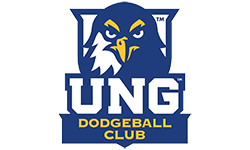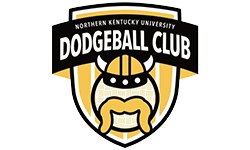Good people, after many conversations with multiple people and the rest of the Executive Board, we have reached a final interpretation of the Clean Blocking rule.
As it might appear in the Rulebook
1. Blocking – A Target can use a dodgeball to block any direct throw. However, the blocking dodgeball(s) must remain secure after being hit, and the ricochet must not hit the blocking Target’s body.
1.1 Knockout – If a blocking ball becomes dislodged, the Target must regain possession before the dislodged ball becomes dead. Failure results in a Loss of Possession [3.4.3.1] and the Target is ruled out.
1.2 Dirty Block – If the ricochet hits the blocking Target, a catch must be made on the ricochet before the ball becomes dead. Failure will result in the Target being ruled out.
1.2.1 Block Assisted Personal Catch – If the blocking Target catches the ricochet, it counts as a Personal Catch (new phrase for a Direct Catch). A player from the Target’s jail comes back into play. The Thrower is out.
Note: The play must be isolated to the blocking Target. Once the ricochet hits a teammate, it is only eligible for a Team Catch.
1.2.2 Block Assisted Team Catch – If a teammate of the Target catches the ricocheted ball before it becomes dead, it is deemed a Block Assisted Team Catch. A player from the Target’s jail comes back into play. Neither the Target nor the Thrower are out.
Examples from the Casebook
2.1 If a directly thrown ball is blocked into the ground, this is a Clean Block and no one is out.
2.2 If a directly thrown ball is blocked into the blocking Target, then the thrown ball hits the ground, the blocking Target is out.
Why: The Target failed to personally catch the ricochet, and a teammate failed to team catch the ricochet, all before the ball became dead by hitting the ground.
2.3 If a directly thrown ball is caught by the Target with the assistance of a possessed ball, this counts as a Block Assisted Personal Catch. The thrower is out, the catcher is safe, the catcher’s team gets one player in from the jail.
Why: A Personal Catch doesn’t need to be clean, contact with a held ball is now permitted. Further, the Target can catch the thrown ball clean, or simultaneously catch the thrown ball with a held ball, or deflect the thrown ball into the air and then catch it for a valid Personal Catch. A play can be made on a live ball until it becomes dead.
2.4 If a directly thrown ball is blocked into a teammate of the blocking Target, the thrown ball is ruled dead upon contact with the teammate.
Why: Since the blocked ball did not hit the blocking Target’s body, it was blocked cleanly. The Target is not at risk for elimination and a Team Catch is not possible. Hitting the Teammate deems the ball dead.
2.5 If a directly thrown ball is blocked into the blocking Target, then a teammate catches the ball, it is a Team Catch. No outs, the blocker’s team gets one player in from the jail.
Why: A Team Catch acts as a measure to save the hit Target from elimination. The Target failed to block the ball cleanly from their person, and was hit. A hit Target has an obligation to catch the ricochet or be ruled out when the ricochet becomes dead.
2.6 If a directly thrown ball is blocked into the blocking Target, hits a teammate and the original blocker catches the ball, it is a Team Catch. No outs, the blocker’s team gets one player in from the jail.
Why: Once the ricochet hits a teammate, it is only eligible for a Team Catch, no matter who on the team caught the ball.
2.7 If a directly thrown ball is blocked into the blocking Target, hits the possessed ball of a teammate and is caught by anyone on blocker’s team, it is a Team Catch. No outs, the blocker’s team gets one player in from the jail.
Why: A ricochet can hit any number of teammates, and can hit any number of possessed balls by the teammates, and a Team Catch is still eligible. Once the ricochet hits a teammate, it is only eligible for a Team Catch.
Further Commentary
3.1 A Direct Catch is now classified as a Personal Catch, indicating the play only involves the initial Target.
3.2 Only the blocking Target is at risk for becoming out.
3.3 The purpose of a Team Catch is to save a teammate from elimination, thus the only time a Team Catch can be made is if a teammate is at risk for being ruled out.
3.4 A Team Catch does not have to be clean. A teammate may use a possessed ball to assist in making a Team Catch.
3.5 A thrown ball is ruled dead by about a dozen different instances throughout the Rulebook.
- hits any surface of the court or environment
- secured by any type of Personal Catch: Direct Catch or Block Assisted Catch
- secured by any type of Team Catch: Team Catch or Block Assisted Team Catch
- becomes Trapped (simultaneous stop using part of the players body and the court)
- hits a teammate after a clean block
- hits a dead player [Dead Player Involvement]
- hits a teammate after being thrown by a teammate [Siblicide 3.4.2.1.3]
- hits another dodgeball in mid air [Higgs Boson 3.3.4.3.2]
- hits an unprocessed dodgeball
- declared dead by a Stoppage in Play [3.3.1.1]
Terminology aside: A “Ricochet” is a hit off a Target player. The Target needs to make a Personal Catch on the hit, or a Teammate needs to make a Team Catch off the hit, all before the ball becomes dead. In the much revised rulebook we are trying to keep this naming convention.
Discussion
Comment below or in the Captains’ Club with any specific scenarios/questions you have regarding this rule.
Thank you for your patience. I was sick for three weeks and highly spirited discussion of this rule has been ongoing for months. I am impressed by all the scenarios everyone has come up with and grateful to the Officials that shakedown cruised the rule and shared their feedback.
All of this is reflected in an extensive reorganizing of the 2017 Rulebook, in order for it to be logical to read and easy to understand. It was overdue, with the the last recodification in 2011. The 2017 version will be released by the end of the week. If discussion continues, we’ll be able to add scenarios to the casebook throughout the Season.

























